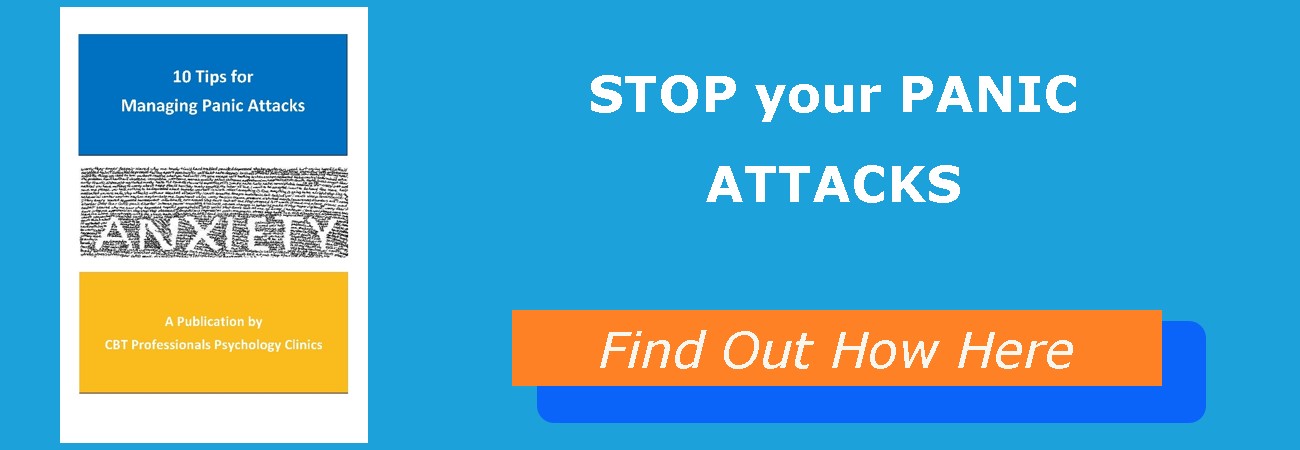Top 13 Panic Attack Symptoms
Top 13 Panic Attack Symptoms
Are you experiencing episodes of intense fear where all of a sudden you feel the need to get the freak out of here? Find yourself looking for the nearest exit? Avoiding crowded places? Or maybe you’ve started to fear for your health? Chances are you could be experiencing panic attacks. In this blog, you will find a comprehensive list of panic attack symptoms and information on why our body produces these symptoms.
Panic Attack Symptoms
Symptoms of a panic attack include experiencing a fast surge of intense fear or discomfort that peaks quickly, within minutes, and during which four or more of the following symptoms occur:
Pounding, fast heart rate
Sweating
Shaking
Feeling short of breath
Feeling like you are choking
Chest pain
Nausea
Feeling dizzy, light-headed, or faint
You may feel sensations of heat or chills
Numbness or tingling sensations
Feelings of unreality or detached from oneself
Fear of losing control or ‘going crazy’
Fear of dying
The Fight or Flight Response
You have a fight or flight response (FOFR) that is your life saving alarm – this is essential for keeping you safe. When your mind perceives danger (real or imagined) your body will release large amounts of adrenaline, a stress hormone, that prepares your body to protect itself by setting off a chain of reactions that prepare your body to either stay and fight the danger, or, to run away. This includes shutting down unnecessary body functions like digestion, and sending blood to your muscles to provide your muscles the energy needed to take action.
Unfortunately, sometimes our body can get ready to protect itself when there is no real physical danger to us. This is a panic attack – a false alarm when your fight or flight response is firing rapidly when there is no real danger. Most often after a panic attack, people have no idea why they were freaking out.
What Causes False Alarms?
Panic attacks can be triggered from severe stress such as death of a loved one, or being under immense stress at work and home. Sometimes panic attacks are associated with underlying medical or physical causes and you should speak to your doctor to rule this out. People who have a history of drug use can also be susceptible to developing panic attacks. A family history of anxiety or if you have been a worrier yourself, are also risk factors for panic attacks.
Panic attacks are not dangerous but they can feel very scary. You may think that you are having a heart attack, dying or going crazy but more than likely you are experiencing anxiety symptoms. Your body is preparing to protect you as if you are facing a wild animal that is about to attack.
Although it feels in the moment like a lifetime, panic attacks don’t last long, and usually symptoms subside after 5 to 10 minutes. You may feel exhausted after a panic attack because they use up a lot of the body’s energy. They quickly run out of energy and this is why they won’t last very long.
For information on how to manage panic attacks, we have prepared a free guide “10 Tips for Managing Panic Attacks”. You will find lots of useful information on how to start feeling back in control and not so scared. You can download your copy here. After trying these strategies, if you find that you are still struggling with anxiety, it may be helpful for you to speak to a professional such as a psychologist who can provide individualised help and support tailored for you.
THREE CONVENIENT LOCATIONS
MOUNT GRAVATT
Mt Gravatt Medical PrecinctSE 105, 1808 Logan Rd
Upper Mount Gravatt QLD 4122



